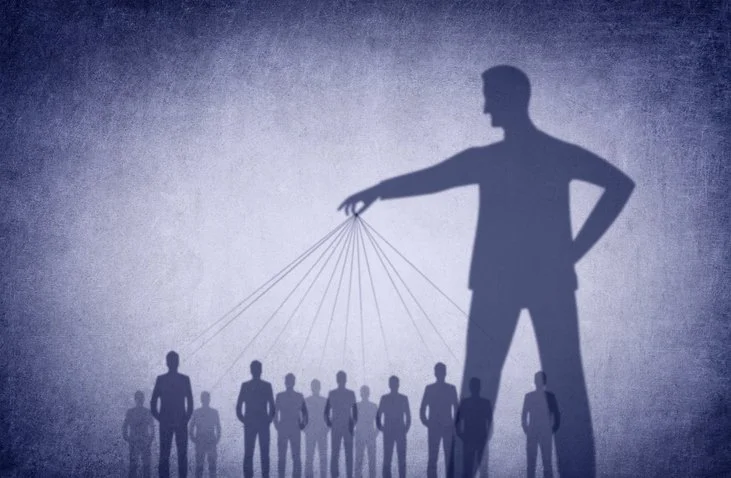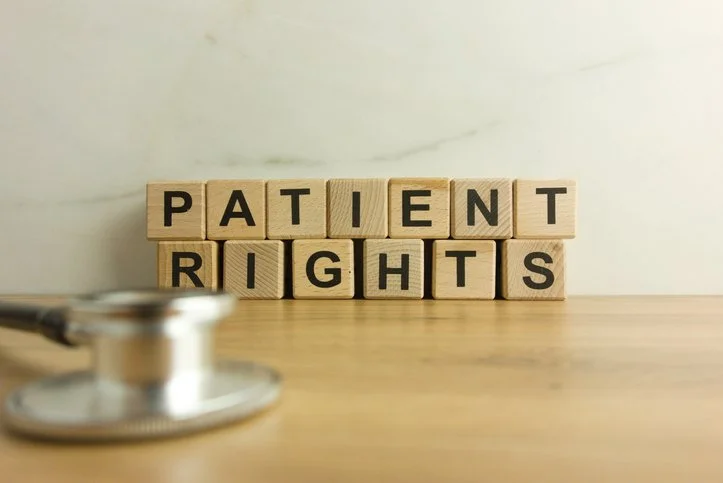Who Is the Boss, You or Your Doctor?
When we hire someone to provide services that require skills we don't possess, we usually trust their recommendations because they have the expertise we lack. We communicate our needs to them, and they present us with various options, detailing the cost, materials, time frame, and any potential risks involved. After we have evaluated the options, we choose one that suits us best. Once the services are rendered in accordance with our agreement, we pay for them. But is that all there really is to it?
Who's the Boss?
Let's imagine that we have a dripping faucet that needs to be fixed by a plumber. We reach out to various local plumbing companies to get an idea of their pricing and availability and eventually select the one that we feel most comfortable doing business with. When we make the payment, a portion of it is allocated towards the cost of the materials used, another portion goes to the person who performed the repair, and the remaining amount goes to the owner, who needs to cover expenses such as rent and insurance.
When someone comes to fix the faucet, it is important to keep in mind that they do not see you as their boss, especially if they own the plumbing company. In cases where someone else is the owner, they see their supervisor as their direct boss and anyone with more authority, including the owner. However, it is us - the customers - who are paying the owner for the services provided. In other words, even though the owner has control over the company, we are the ones who hire and pay for the services.
Moreover, we have the authority to terminate the arrangement if anything goes wrong. For example, if the person is supposed to arrive during specific hours but fails to do so, we have the option to switch to a different company that values our time. We have the power to hire and fire as we see fit. Ultimately, we are the ones in charge; we are the boss.
Be Your Doctor's Boss
One of the first things I tell my new patients is that I work for them; they are the boss. It always brings a smile to their face. I am awed by a plumber who can install the entire household system, but I will not allow him/her to boss me around or take advantage of me, and the same goes for my doctors. I am awed by their skills, but I know where to draw the line. Here is an example:
A few years ago, I had scheduled a follow-up appointment with my doctor and was informed that if I missed the appointment, I would be charged. I asked the staff about the duration of the appointments and was told that they usually last for about fifteen minutes. I then mentioned how I had been made to wait for an hour during my last appointment. According to their standards, they owed me four times the missed appointment fee, and I was willing to accept cash or credit. Although I said this in a joking manner, I couldn't help but wonder why it was acceptable for my doctor to keep me waiting for so long, especially when it would be considered rude if I did the same to someone who was visiting me at my home. If my time is not valued, is my health also unimportant?
The Patient Bill of Rights
Sometimes, the healthcare we receive goes beyond disrespect for our time. Medical errors are the third leading cause of death in America. 1 On June 22, 2010, President Obama announced the Patient's Bill of Rights - a set of protections for health coverage under the Affordable Care Act, starting on or after September 23, 2010. The Departments of Health and Human Services, Labor, and Treasury worked together to create these regulations. The Patient's Bill of Rights ensures that children and eventually all Americans with pre-existing conditions can get and keep health coverage, have the freedom to choose their doctors and eliminate lifetime limits on healthcare. These new regulations established a strong foundation of patients' rights in the private health insurance market, giving individuals more control over their health. 2
American Patient Rights Association
There exists an online private organization named The American Patient Rights Association (APRA), which is a nationwide membership organization that supports people in paying less for their medical treatment and avoiding potential harm through their specialized programs and apps. I recommend visiting their website because they have a ton of useful information. The best time to do it is before illness strikes!
The APRA is fighting for fair, safe, transparent, and affordable healthcare that everyone deserves. They strive to eliminate preventable medical errors and predatory medical billing, which is the leading cause of personal bankruptcy. APRA is also dedicated to empowering healthcare consumers by providing them with a voice and unbiased information. They offer beneficial programs to assist their members in avoiding financial hardship resulting from medical bills, which is currently the leading cause of bankruptcy. Interestingly, seventy-two percent of patients who go bankrupt due to medical bills have health insurance.
Furthermore, APRA provides its members with valuable resources to help protect themselves and their families from preventable medical errors. These errors are responsible for the deaths of up to 440,000 hospital patients annually and injuries to millions more. Finally, they offer resources to aid their members in safeguarding themselves against medical, pharmaceutical, and insurance organizations that prioritize profits over patients' well-being.
Conclusion
Don't stand for poor treatment from anyone, whether they are the Pope or your doctor. We will all get sick sometimes and will need medical care, but there are ways to minimize the risks. In a future post, I will cover some general rules for staying healthy and avoiding the need for medical care. It includes the basics like getting regular, non-burning sun exposure, enough sleep, proper nutrition, movement, and the right friends.




